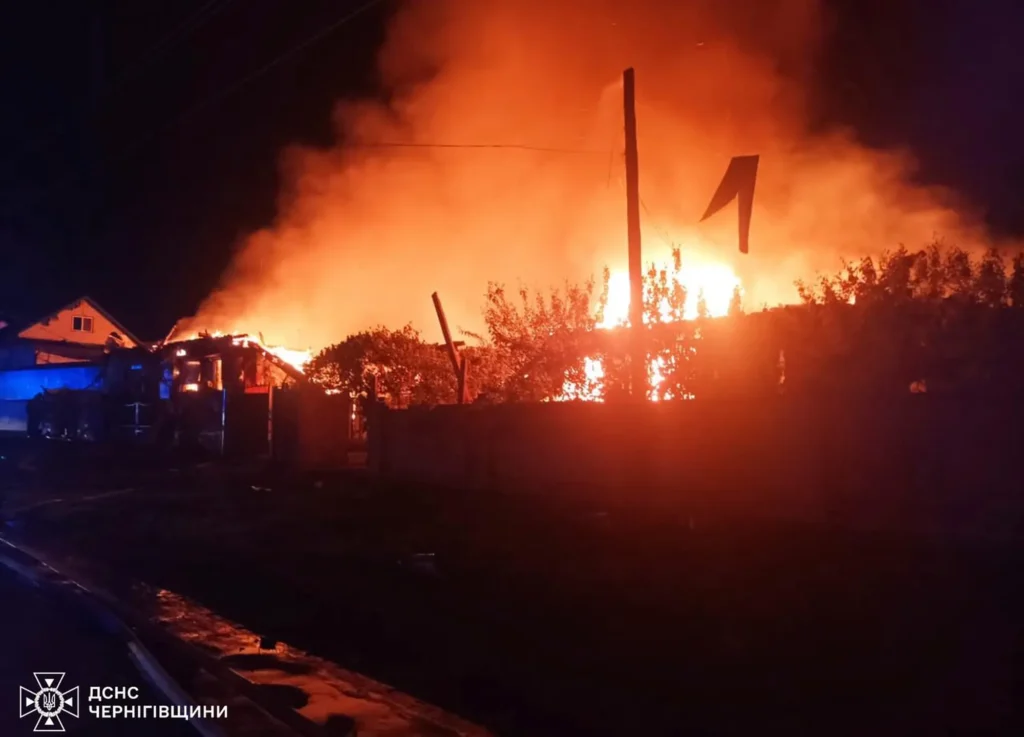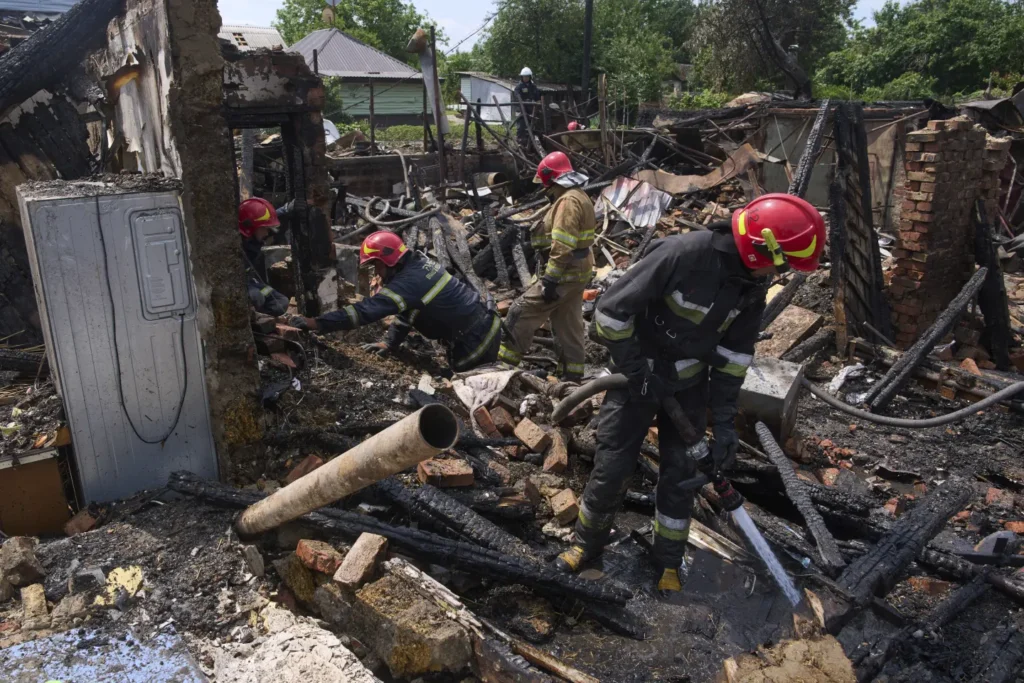PRYLUKY, Ukraine — A predawn Russian drone strike on the northern Ukrainian city of Pryluky killed at least five people, including a 1-year-old boy, his mother, and grandmother, Ukrainian officials said Thursday. The deadly attack occurred just hours after a phone call between U.S. President Donald Trump and Russian President Vladimir Putin.

According to Ukrainian authorities, six Shahed drones struck a residential area of Pryluky shortly before sunrise, injuring nine others. Ukraine’s Interior Minister Ihor Klymenko confirmed that the child killed was the grandson of the city’s fire chief, who was among the first responders at the scene.
President Volodymyr Zelenskyy said the fire chief, Oleksandr Lebid, 50, had responded to the emergency only to discover the drone had hit his own home. “It turned out that a Shahed drone hit his house,” Zelenskyy said on Telegram.
The child’s mother, Daryna Shyhyda, a police officer, had relocated from Kyiv to her parents’ home in Pryluky just days earlier, fearing an attack on the capital, according to neighbors. “She ran away from Shaheds in Kyiv, but they found her here,” said Liudmyla Horbunova, a neighbor.
Images from the aftermath showed firefighters extinguishing blazes and sifting through the blackened rubble of what had been Shyhyda’s family home, now reduced to bricks, scattered toys, and charred photo albums.
The attack on Pryluky was part of a larger overnight offensive. Ukrainian President Zelenskyy said that Russian forces launched a total of 103 drones and one ballistic missile targeting multiple regions, including Donetsk, Kharkiv, Odesa, Sumy, Chernihiv, Dnipro, and Kherson.
“This is another massive strike,” Zelenskyy said. “It is yet another reason to impose the strongest possible sanctions and apply pressure collectively.”

Pryluky, a city of roughly 50,000 located about 100 kilometers (60 miles) east of Kyiv, is far from the front lines and does not host any known military infrastructure. The last strike on the city occurred in November 2024.
The assault came just hours after President Trump held a phone call with Putin. Following the conversation, Trump said Putin expressed intentions to “retaliate strongly” for Ukraine’s recent drone attacks on Russian airfields. The Kremlin has not publicly commented on the call.
Zelenskyy, who has endorsed a U.S.-backed ceasefire plan and offered to meet with Putin to negotiate, continues to push for intensified international sanctions. However, Russia has shown no indication it is willing to compromise or engage directly with Ukrainian leadership.
Meanwhile, Germany’s newly elected Chancellor Friedrich Merz was expected to meet with President Trump in Washington to maintain U.S. backing for military and humanitarian support to Ukraine.
Ukraine’s top presidential aide, Andriy Yermak, met with senior American officials in Washington on Wednesday. According to a statement released on the Ukrainian president’s website, Yermak accused Russia of stalling peace talks and called for greater U.S. pressure on the Kremlin. He emphasized Ukraine’s urgent need for improved air defense systems.
Elsewhere, 19 people were injured in a separate drone attack on Kharkiv. Among the wounded were children, a pregnant woman, and a 93-year-old, according to regional governor Oleh Syniehubov. Two apartment blocks were hit in the Slobidskyi district, sparking fires and damaging vehicles.
In the southern city of Kherson, Russian aircraft dropped four glide bombs, injuring at least three people, local authorities said.
In Russia, the Federal Security Service reported that a rail line was damaged by an explosion in the Voronezh region, near the Ukrainian border. Russian rail operators said 26 trains were halted due to the disruption.
The incident followed remarks from Putin condemning what he described as “terrorist acts” by Ukrainian operatives targeting Russian infrastructure. Earlier in the week, seven people were killed and two trains derailed following attacks on bridges in the Kursk and Bryansk regions.
As the war approaches its fourth year, diplomatic breakthroughs remain elusive. The civilian toll continues to grow, and cross-border escalation shows no sign of abating.



